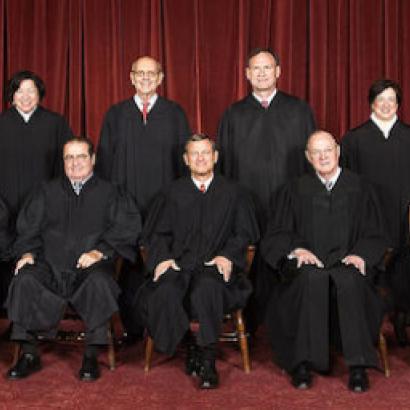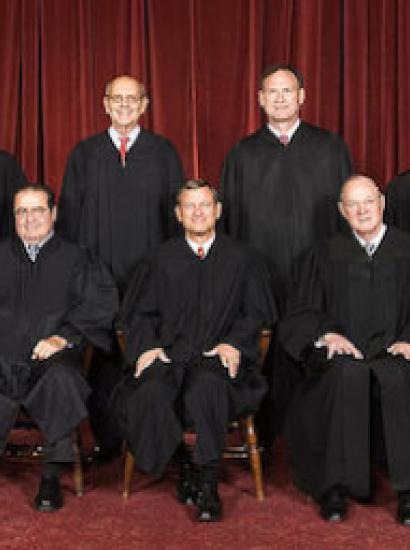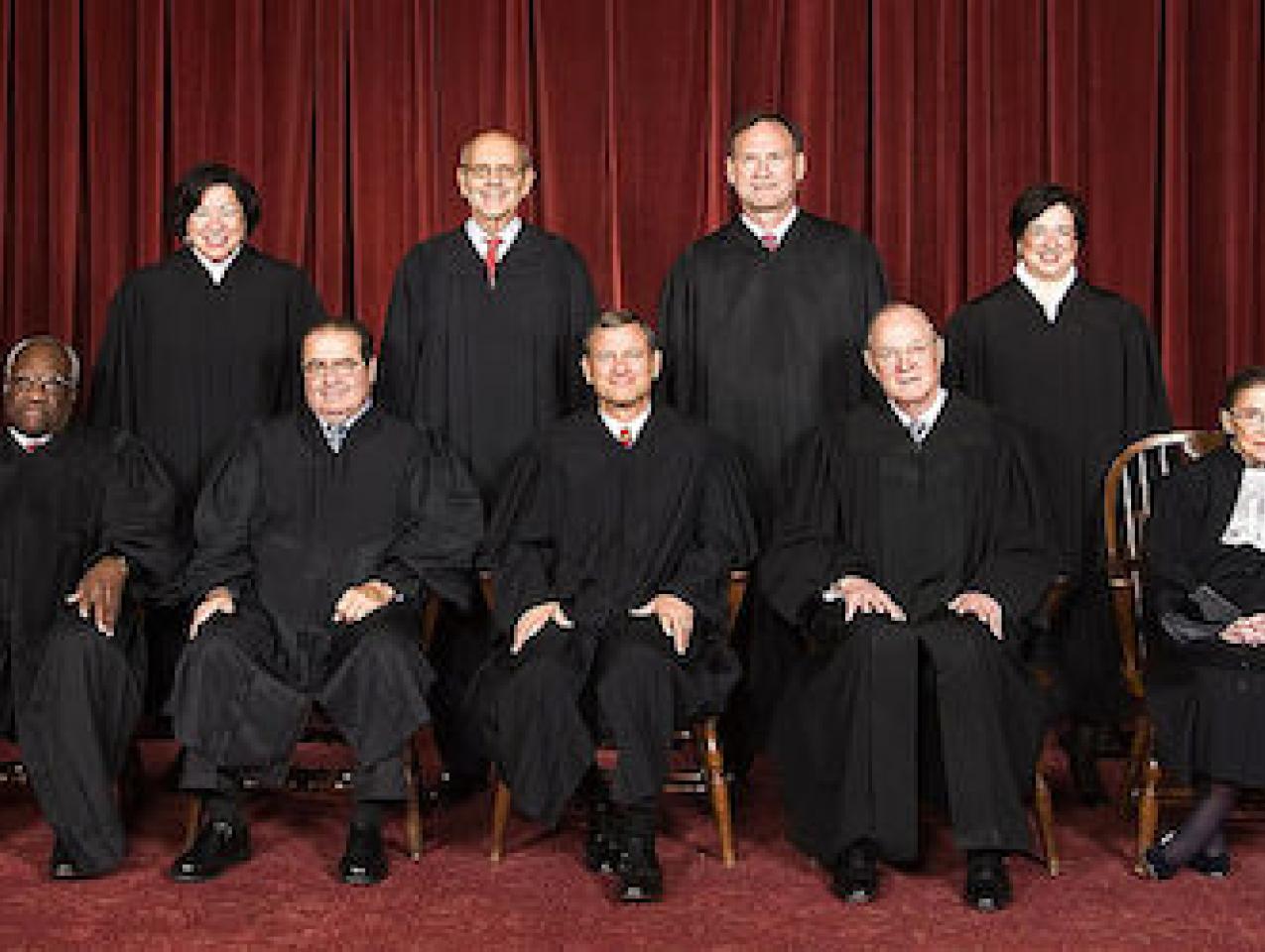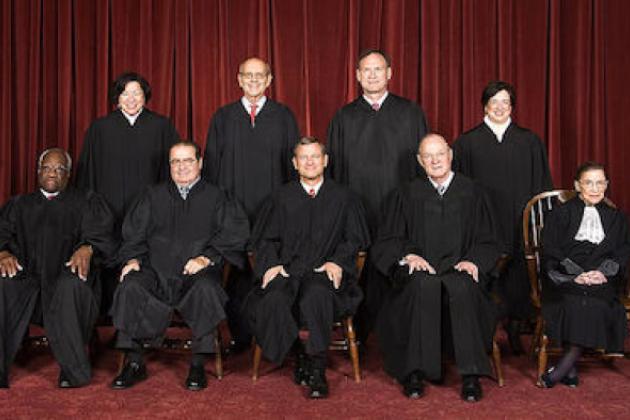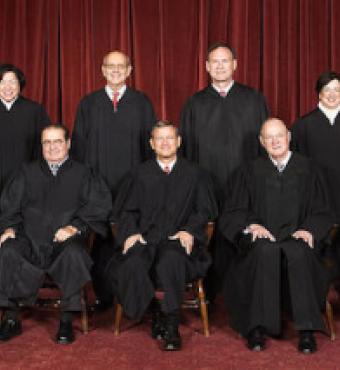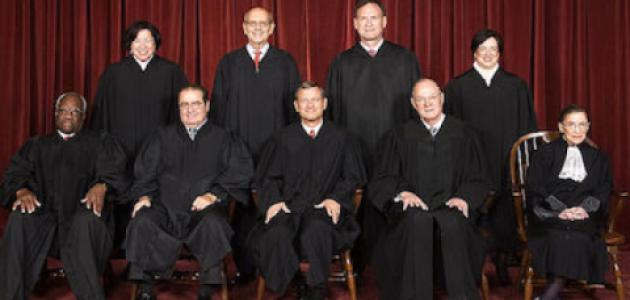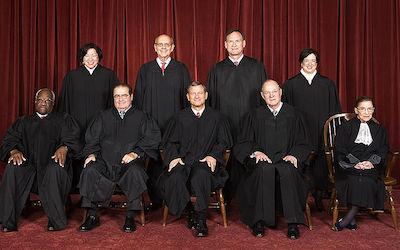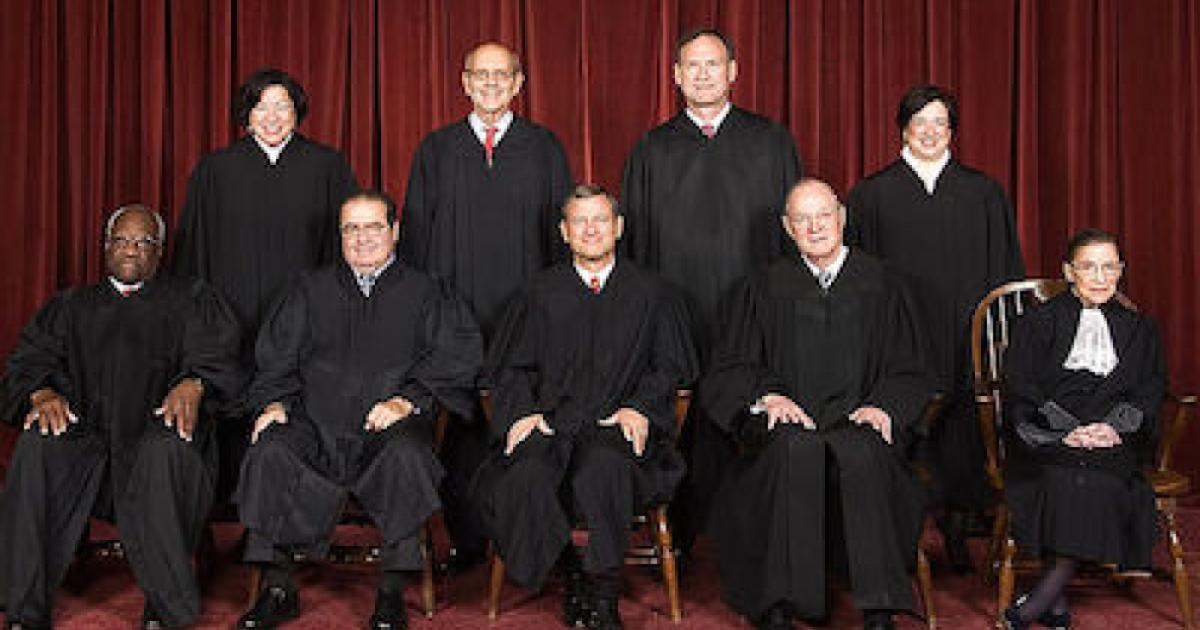- Law & Policy
- Regulation & Property Rights
Much has been made recently about the Obama administration’s aggressive and excessive use of executive power. Examples include making recess appointments when the Senate was not in recess and repeatedly changing significant parts of the Patient Protection and Affordable Care Act (Obamacare) without express legislative authority. Similar excessive executive authority has been used in executing laws pertaining to entitlements and immigration.
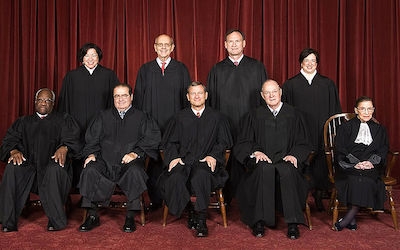
Photo credit: Wikimedia
The administration also exerts its strong-arm on a more local level, as evidenced by several recent U. S. Supreme Court cases. In those cases, which have received very little attention, the Obama administration took a crabbed view of an individual’s fundamental rights. It is one thing to be a liberal or a progressive administration; it is quite another to be hostile to fundamental individual rights. The cases described in this essay reflect an administration that is antagonistic to fundamental rights guaranteed in the Constitution.
Hosanna-Tabor Evangelical Lutheran Church v. Equal Employment Opportunity Commission (2012)
Cheryl Perich was a teacher at the Hosanna-Tabor Evangelical Lutheran Church, a small religious school in Michigan. She had undergone religious training and was certified to teach religious courses and lead religious services at the school. She also taught secular subjects. Her religious work took up only about forty-five minutes of her day.
In 2004, Perich became ill with narcolepsy and could not start the school year, but the school continued paying her for seven months. She subsequently attempted to return to work, but the church had already hired a replacement and, because of Perich’s behavior, the school principal did not think she was ready to resume teaching. She was disruptive and threatened a lawsuit, which violated written Lutheran Church doctrine. The congregation conducted a thorough due process hearing, rescinded Perich’s “call,” and terminated her employment. The termination decision was based on doctrine; it had nothing to do with disability.
Thereafter, Perich filed an Equal Employment Opportunity Commission (EEOC) complaint, claiming discrimination under the Americans with Disabilities Act. The EEOC ultimately filed suit against the church. The U.S. District Court ruled for the church based on the “ministerial exception” doctrine. The Sixth Circuit Court of Appeals reversed, holding that Perich did not qualify as a minister under the ministerial exception.
The question presented when the Supreme Court considered the case was whether the ministerial exception doctrine applies to a teacher who teaches secular subjects and also teaches religious courses, leads students in prayer, and is a commissioned minister. The ministerial exception is a long-standing legal principle providing that ministers cannot sue a church over employment issues. For example, it would violate the religion clauses of the First Amendment for courts to compel the ordination of women by the Catholic Church.
The Solicitor General, representing the EEOC, claimed there is no such thing as a ministerial exception. This was a startling position to take, inasmuch as all federal circuit courts that had considered the matter recognized the ministerial exception as a legitimate doctrine.
In a unanimous decision, the Supreme Court held that Perich was a minister under the ministerial exception. It further held that the Establishment Clause and the Free Exercise Clause of the First Amendment (“Congress shall make no law respecting an establishment of religion, or prohibiting the free exercise thereof”) barred suits brought on behalf of ministers against their churches claiming termination in violation of employment discrimination laws.
Requiring a church to accept or retain an unwanted minister, or punishing a church for failing to do so, intrudes upon more than a mere employment decision. Such a decision interferes with the internal governance of the church. By imposing an unwanted minister, the state infringes the Free Exercise Clause. Furthermore, giving the state the power to determine who will minister to the congregation also violates the Establishment Clause, which prohibits government involvement in such religious decisions.
The Supreme Court sent a strong message to the Obama administration that the Constitution prevents the government from interfering with a church’s ability to select its own ministers.
United States v. Jones (2012)
In 2005, the FBI obtained a search warrant to place a Global Position System (GPS) tracking device on drug suspect Jones’ car. The warrant required that the device was to be executed in the District of Columbia within ten days. Law enforcement personnel erred and placed the GPS on Jones’ car in Maryland on the eleventh day. Thus, the warrant could not be used as a lawful basis for the search. Nevertheless, the FBI tracked Jones’ car with the GPS device for four weeks and collected evidence used to secure his conviction.
The issue at trial was whether tracking a car for several weeks through use of a GPS device qualifies as a search absent a search warrant. The argument that the search was reasonable was not raised in the lower courts and therefore could not be raised on appeal.
The sole question presented to the Supreme Court was whether the attachment of the GPS device to the vehicle and its use constituted a search. The government contended, somewhat amazingly, that there was no search.
In a unanimous decision, the Supreme Court held that there was a search under the Fourth Amendment (“the right of the people to be secure…against unreasonable searches…shall not be violated”). Five Justices reasoned that by installing the GPS device on the car, the police had committed a trespass against Jones’ personal effects—this trespass, in an attempt to obtain information, constituted a search per se. Four Justices found that the long-term GPS surveillance constituted a search that violated Jones’ reasonable expectation of privacy. In other words, all the Justices agreed there was a search, but for different jurisprudential reasons.
The Court did not say a warrant was required, that probable cause or a reasonable suspicion was required, or that a warrantless search was invalid. The Court went no further than to answer the question presented—was there a search? In plain terms, the Court held that there was.
This case reflects an awkward attempt by the government to secure a conviction when the basis for the search was a violation of the Constitutional right to be free of unreasonable searches.
Sackett v. Environmental Protection Agency (2012)
Mike and Chantell Sackett purchased a small lot in Idaho in 2005 on which they planned to build a home. The lot was not connected to a stream or a lake and there was no water on the lot. They obtained the required local permits and began clearing the lot to build.
Environmental Protection Agency (EPA) representatives appeared unexpectedly and ordered the Sacketts to stop the building process, alleging that their lot was a wetland. The Clean Water Act prohibits the discharge of pollutants into navigable waters without a permit. The EPA issued a Compliance Order to the Sacketts saying their residential lot contained navigable waters. The EPA could have initiated a civil enforcement action, but it did not do so. The Compliance Order is a threat, one step short of filing a civil enforcement action. Violating the Compliance Order warranted a daily fine of $37,500. The Sacketts asked for a hearing, but the EPA denied the request.
The Sacketts sued, seeking declarative and injunctive relief under the Administrative Procedures Act (APA). The APA provides for judicial review of final agency decisions for which there is no other adequate judicial remedy. The U. S. District Court and Court of Appeals denied relief, holding there was no jurisdiction because the Clean Water Act did not provide for judicial review and the EPA actions did not violate due process. That was the government’s position at the Supreme Court. The issue was not whether the Sacketts violated environmental laws. The issue was whether they had a right to judicial review of the EPA’s Compliance Order inasmuch as that Order was not a final enforcement action.
The Sacketts were denied use of their property for years and were not allowed to contest the EPA decision administratively or judicially. The government used a theory of procedure over substance in order to prevent the Sacketts from having access to judicial review.
In a unanimous decision the Supreme Court reversed the Court of Appeals, holding that the Sacketts may bring a civil action under the APA to challenge the EPA. The Court’s decision did not rest on Constitutional grounds, but it does stand for the proposition that the actions of government bureaucrats are subject to judicial review. The court stopped the unbridled EPA and afforded the Sacketts their day in court.
Arkansas Game & Fish Commission v. United States (2012)
In 1948, the Army Corps of Engineers imposed a temporary flood regime around an Arkansas wildlife management area. Periodically from 1993 until 2000, the plan caused flooding across the region for six years and destroyed or damaged 18 million board feet of timber on Arkansas’ property. Arkansas filed a suit for compensation based on the “takings clause” of the Fifth Amendment (“nor shall private property be taken for public use, without just compensation”). The government contended that there was no taking.
Arkansas prevailed in the Court of Federal Claims and was awarded $5.7 million for the lost timber and cost of reforesting. The Court of Appeals for the Federal Circuit reversed on the grounds that there could be no takings claim unless the flooding was permanent or inevitably recurring.
In a unanimous decision, the Supreme Court reversed, holding there is no temporary flooding exception to the takings clause of the Fifth Amendment. The Court refused to create a new legal doctrine in order to satisfy the government’s desire to save money. In other words, a taking is a taking.
***
What do these cases have in common? First, the government lost all four in unanimous decisions. Second, each case dealt with a government infringement on a fundamental right—freedom of religion, the right to be free from unreasonable searches, the right to enjoy private property and due process, and the right to compensation when the government takes your property.
It is rare for the executive branch to lose four cases dealing with fundamental rights in unanimous decisions in one term. Those who believe in the Constitution and the rule of law should feel uneasy about the administration’s positions in these cases. The positions taken by the government suggest bullying and strong-arm tactics.








